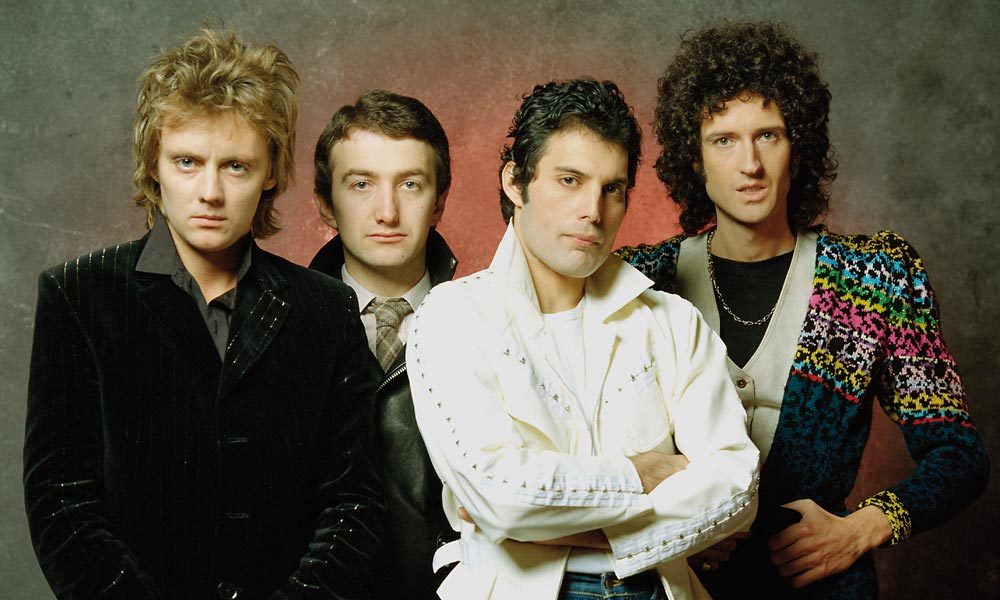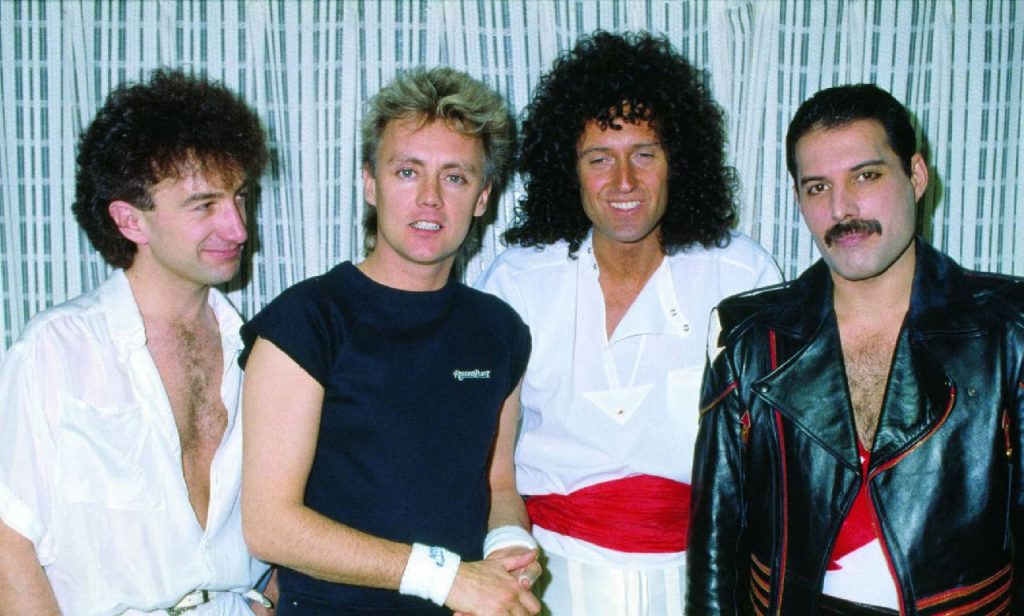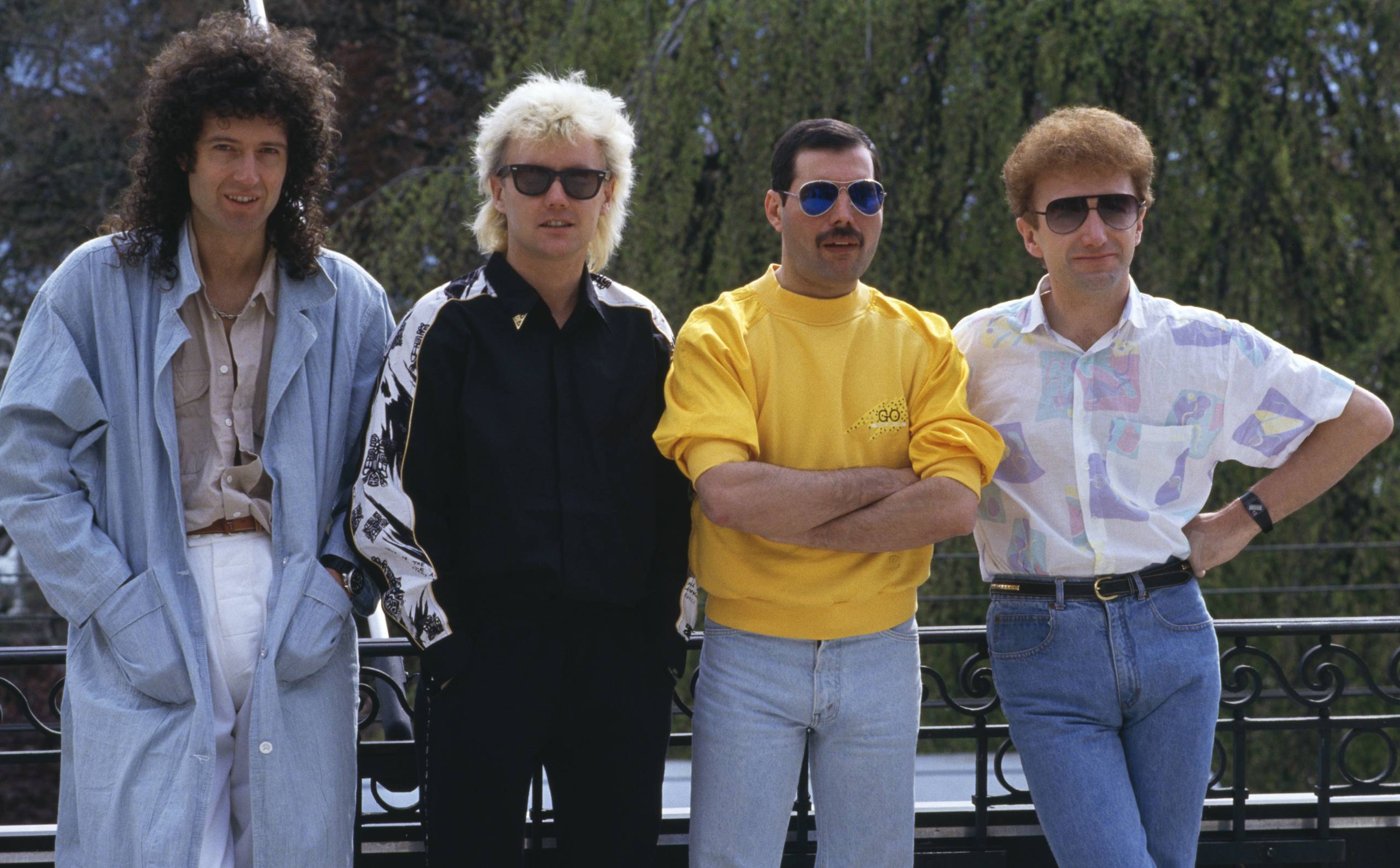“Bohemian Rhapsody” – Queen

“Bohemian Rhapsody” by Queen: A Timeless Masterpiece of Musical Innovation
“Bohemian Rhapsody” by Queen, released in 1975 on the album A Night at the Opera, is one of the most iconic and groundbreaking songs in the history of rock music. Written by the band’s lead vocalist, Freddie Mercury, the song defies conventional musical and lyrical structures, blending rock, opera, and ballad elements into a single, six-minute epic. Its unconventional composition, complex harmonies, and dramatic flair have made it one of the most beloved and enduring songs in popular music. “Bohemian Rhapsody” is not only a testament to Queen’s musical versatility and creativity but also a reflection of Freddie Mercury’s genius as a songwriter and performer.
One of the most remarkable aspects of “Bohemian Rhapsody” is its structure. The song is divided into several distinct sections: a ballad-like introduction, a guitar-driven hard rock segment, an operatic passage, and a final reflective coda. There is no traditional chorus, and the song flows seamlessly from one section to the next, creating a narrative arc that is both captivating and unpredictable. This unconventional format was highly unusual for the time, as most pop and rock songs adhered to a verse-chorus structure. Yet, Queen’s willingness to break the mold paid off, as “Bohemian Rhapsody” became a massive commercial success, topping charts worldwide and remaining one of the best-selling singles of all time.

Lyrically, “Bohemian Rhapsody” is enigmatic and open to interpretation. The song begins with the narrator confessing to having “just killed a man,” which immediately sets a dramatic tone. Throughout the song, the narrator expresses feelings of guilt, fear, and confusion, all while grappling with the consequences of their actions. The operatic section introduces characters such as Scaramouche, Beelzebub, and Galileo, which adds to the song’s theatrical and surreal nature. While Freddie Mercury never fully explained the meaning behind the lyrics, many believe that the song reflects personal and emotional struggles Mercury faced during this period of his life, including questions about identity and self-acceptance. Others view it as a more abstract narrative about fate, guilt, and redemption. The song’s ambiguity is part of what has kept listeners intrigued for decades, allowing them to project their own interpretations onto the lyrics.

Musically, “Bohemian Rhapsody” is a tour de force, showcasing Queen’s diverse influences and their ability to blend genres in innovative ways. The song opens with a haunting piano melody played by Mercury, accompanied by his soft, multitracked vocals. This is followed by a guitar solo by Brian May, which introduces a hard rock section driven by Roger Taylor’s powerful drumming and John Deacon’s bass. The operatic middle section is perhaps the most distinctive part of the song, featuring elaborate harmonies and overdubbed vocals that create the illusion of a full choir. The final section of the song returns to a more subdued and contemplative tone, with Mercury’s plaintive vocals bringing the narrative to a close.
One of the key elements that make “Bohemian Rhapsody” so memorable is its theatricality. Freddie Mercury, who had a background in theater, infused the song with a sense of drama and grandeur that set it apart from anything else at the time. The operatic section, in particular, feels like a mini-opera within the song, complete with different characters, shifting dynamics, and rapid changes in mood. This theatricality extended to the band’s live performances of the song, where Queen would often perform the opening and closing sections live, with the operatic middle part played over the speakers due to its complex layering of vocals and instruments.

“Bohemian Rhapsody” was a bold choice for a single, given its length and unconventional structure, but it was ultimately a massive success. Upon its release, the song spent nine weeks at the top of the UK Singles Chart and became a global hit. It was also supported by a groundbreaking promotional video (now considered one of the first music videos), which helped to further cement Queen’s reputation as pioneers of the music industry. The song’s legacy was revived in the early 1990s when it was featured in the film Wayne’s World, introducing it to a new generation of fans. This resurgence led to “Bohemian Rhapsody” re-entering the charts and once again becoming a cultural phenomenon.
The success of “Bohemian Rhapsody” was a turning point in Queen’s career, establishing them as one of the most innovative and influential bands of the era. It showcased their ability to push the boundaries of what rock music could be, blending elements of classical music, opera, and heavy rock in a way that had never been done before. The song’s complexity and ambition also demonstrated the technical prowess of the band members, particularly Brian May’s virtuosic guitar playing and Freddie Mercury’s unparalleled vocal range and emotive delivery.

In addition to its musical brilliance, “Bohemian Rhapsody” has had a lasting cultural impact. It has been covered, parodied, and referenced countless times in popular culture, solidifying its place as a touchstone of modern music. In 2018, the song’s legacy was further celebrated with the release of the biographical film Bohemian Rhapsody, which chronicled the rise of Queen and Freddie Mercury’s life. The film was a box office hit and reignited interest in both the song and the band, proving that “Bohemian Rhapsody” continues to resonate with audiences decades after its release.
In conclusion, “Bohemian Rhapsody” is a masterpiece that defies categorization. Its bold structure, powerful vocals, and blending of genres make it one of the most unique and enduring songs in rock history. The song is a testament to Queen’s creativity, Freddie Mercury’s songwriting genius, and the band’s ability to create music that transcends time and genre. Even today, “Bohemian Rhapsody” continues to captivate and inspire listeners around the world, solidifying its status as one of the greatest songs ever recorded.











